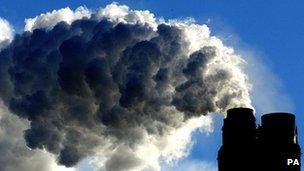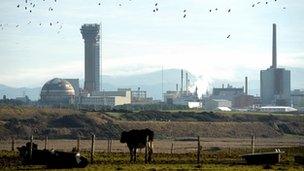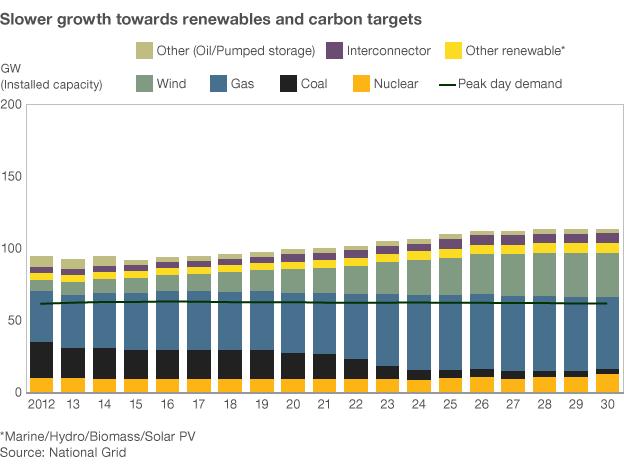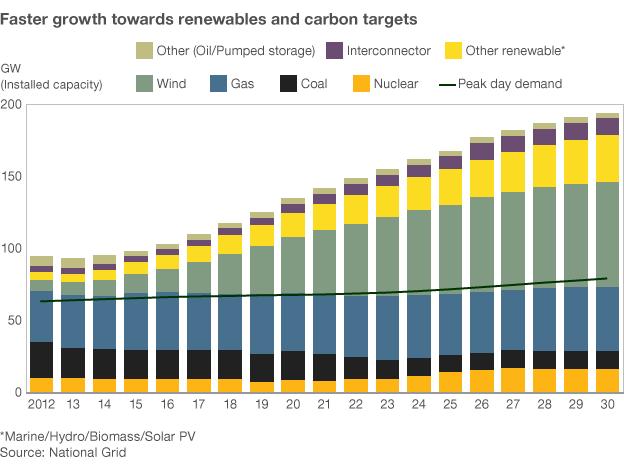Energy bill Q&A
- Published

The closure of coal-fired power plants is forcing the government to increase clean energy production
Finally, the government has published the long-awaited Energy Bill - its blueprint for power generation in the UK for decades to come.
Or at least that was the plan. Some say it has fallen rather short. But what does it mean for you?
Why has the government introduced the bill?
What will it mean for your energy bills?
But what might happen to your bills without it?

Older nuclear plants will be decommissioned and replaced by new nuclear capacity
Is there really a risk of the lights going out?

This scenario shows how the mix of electricity sources changes where developments in renewable and low carbon energy are slow and targets are missed. Gas fills the gap left by coal. Demand is expected to fall as economic growth is slow.

In this scenario, environmental targets for 2020, 2030 and 2050 are reached earlier than required and the build up of wind generation is faster. Demand from businesses increases with economic growth, but is offset by greater fuel efficiency overall.
- Published23 November 2012
- Published23 November 2012